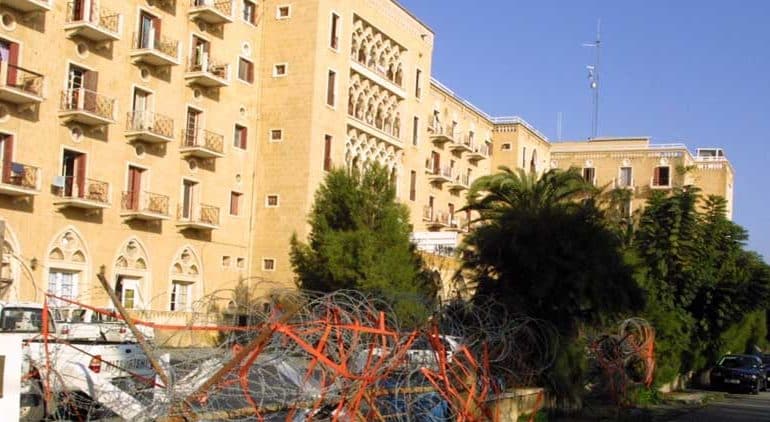It was well known that common ground was beyond the reach of the protagonists at the 5+1 conference on Cyprus. It was a fool’s errand, but it went ahead regardless for reasons that emerged at the end of the Geneva round last Thursday.
Antonio Guterres said there was not enough common ground but that they will all meet again in three months for yet another fool’s errand unless of course a new dynamic is injected into the talks. By all accounts the UN secretary general is a nice man and he is most certainly not a fool. I suppose it is his job to try and try again and leave no stone unturned until there are no more stones left to turn.
He knew that common ground would not be found and that he would have to convene another meeting, presumably after the parties had a chance to let off steam and state their case internationally. Ergun Olgun, the Turkish side’s chief negotiator predicted this would happen at a webinar in March, which suggests that the failure to find common ground was expected and factored in the methodology of the process.
I thought the parties had had enough time to reflect since Crans-Montana in 2017 but I was wrong, although I still think there are limits to how much reflection the Cyprob can command. I underestimated the subtlety of Antonio Guterres’ step by step approach and his determination to find common ground – “I do not give up” he said and if he doesn’t give up neither should the people of Cyprus. The hope is that it is one thing to reflect in the abstract, and it is quite another to do so after having stared into the abyss.
What the secretary-general said at the end of the talks was that despite strenuous efforts “we have not yet found enough common ground to begin formal negotiations” but that the parties agreed to meet again shortly – what on earth for if there is no fresh momentum?
Assuming they keep to their commitment the next 5+1 meeting on Cyprus, which Antonio Guterres said should take place within two or three months, the parties need to refresh the process. Common ground is not just going to appear as if by magic; it has to be cultivated or it will fail to materialise, and as far as I can make out only unconditional and substantive confidence building measures will change the negative dynamic created by the debacle at Geneva.
First and foremost the venue needs to be a lot more imaginative than the rarified atmosphere around lake Geneva, or the UN headquarters in New York’s Manhattan or anywhere other than Cyprus.
I have never understood why negotiations need to take place in places far away from the people who have to live with their consequences. It is undemocratic in the sense that people are deprived of the right to demonstrate about the negotiations and make it clear to their leaders that their plenipotentiary powers to negotiate are held on trust to get a settlement.
Neutral territory may suit some negotiations but not talks on the future of a small island like Cyprus, which need to be held close to the people to whom negotiators are accountable.
Holding the next talks at say the Ledra Palace in Nicosia would enable the people of Cyprus to make their feelings known in demonstrations and speeches outside the venue. For example, if huge numbers gather clamouring for a settlement, it would filter through to the negotiators and concentrate their minds a lot more than if the talks are held in some far away inaccessible city. And the Ledra Palace is ideally situated to enable both communities to express their feelings and demonstrate and add a new dimension to the process – people power.
Also, so far as I know Antonio Guterres has not been to Cyprus and it would help him get a real feel of how strongly people feel about a settlement and thereby help him find the common ground that eluded him in Geneva.
Given the two sides are poles apart, holding talks at the Ledra Palace Hotel on its own is not going to cut it. But the idea of reopening the Ledra Palace Hotel is worth serious consideration not only because it would be accessible to people but also because it would be of huge symbolic significance. People need symbolic events and the reopening of the Ledra Palace in the buffer zone would do Nicosia and Cyprus very nicely.
And if done as part of a range of balanced and substantial confidence building measures they could shift the dynamic towards finding common ground not just in theory but in practice with tangible benefits. It is impossible to be optimistic after the latest debacle, which was very disappointing even if expected. There is no room left for further reflection, it is time for palpable confidence building measures. Something has to change before the next meeting. If nothing changes another meeting would be pointless.
Alper Ali Riza is a queen’s counsel in the UK and a retired part-time judge







Click here to change your cookie preferences